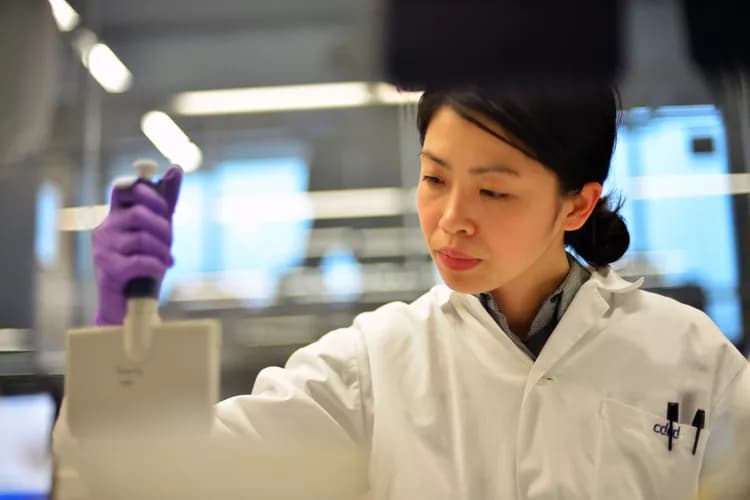A sluggish insulin metabolism results in the slow and incomplete healing of injuries. That is why diabetics often have to contend with wounds that heal poorly. Researchers at the Max Planck Institute for Biology of Ageing, the CMMC, the CECAD Excellence Cluster and the Institute of Genetics of the University of Cologne have now gained new insights into the underlying cellular mechanisms. Their findings could lead to the development of new treatment methods.
According to estimates by the International Diabetes Federation (IDF), some six million people in Germany suffer from diabetes mellitus, around 90 percent of whom have the type 2 form. The disease, which is triggered by a disturbance of insulin metabolism, has serious effects on the entire body. One problem these patients face is poor wound healing.
It had previously been assumed that high levels of glucose in the blood damages vessels and neurons and impairs the immune system, thereby accounting for the wound-healing problems. A Cologne-based research group headed by Linda Partridge, Director of the Max Planck Institute for Biology of Ageing, and Maria Leptin, professor at the Institute of Genetics of the University of Cologne, has now presented in a study that slowed insulin metabolism at the wound site directly affects neighbouring cells involved in wound healing.
Investigations of fly skin
Parisa Kakanj, the author of the study, examined the skin of larvae of the fruit fly Drosophila melanogaster. These flies serve as models for diabetes, because insulin metabolism has been strongly conserved over the course of evolution, meaning that flies and mammals are very similar in this respect. Using a precision laser, Kakanj removed a cell from the outermost skin layer of fruit fly larvae and then observed what happens in the neighbouring cells live under the microscope.
"Immediately after a skin injury, the neighbouring cells respond by forming an actomyosin cable," Kakanj explains. The cable consists of proteins that otherwise occur in muscle fibres, where they are responsible for muscular contraction. After an injury, the cable forms a contractile ring around the wound. It then contracts, sealing off the gap caused by the wound. "However, if insulin metabolism is impaired, as in our genetically modified flies, the cable is weaker and forms much later. This results in incomplete or slow wound healing," as Kakanj relates.
Local treatment for better wound healing
New treatments for impaired wound healing could precisely target this mechanism. "Our findings raise hope of a potential treatment for diabetics. In future, it may be possible to treat wound sites with drugs that locally activate insulin metabolism," Kakanj explains. The research team is now working closely with Sabine Eming, a senior dermatologist at the clinic and polyclinic for dermatology and venereology at the University Hospital Cologne, the CMMC and the Excellence Cluster for Ageing Research at the University of Cologne in order to investigate ways to implement this approach.
Materials provided by University of Cologne - Universität zu Köln. Note: Content may be edited for style and length.
Disclaimer: DoveMed is not responsible for the adapted accuracy of news releases posted to DoveMed by contributing universities and institutions.
Primary Resource:
Kakanj, P., Moussian, B., Grönke, S., Bustos, V., Eming, S. A., Partridge, L., & Leptin, M. (2016). Insulin and TOR signal in parallel through FOXO and S6K to promote epithelial wound healing. Nature Communications, 7, 12972.
Related Articles
Test Your Knowledge
Asked by users
Related Centers
Related Specialties
Related Physicians
Related Procedures
Related Resources
Join DoveHubs
and connect with fellow professionals


0 Comments
Please log in to post a comment.